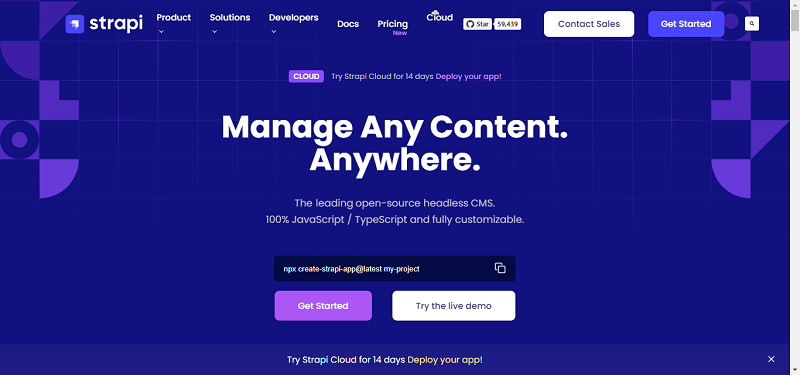The modern-day accounting has come a long way from the times when the financial information existed only on paper. Today, advancement in technology has transformed almost every aspect of the accounting industry. It has eased everyday work for accounting professionals and has helped them focus more on their core competencies to serve their clients better.
One of the most prominent technological changes that have revolutionized this sector is the adoption of cloud technology. Due to the mobility and flexibility advantages, more and more firms are making a move to a cloud-based system.
According to a study by Gartner, the worldwide public cloud market is expected to reach $354.6 billion by the year 2023.
Cloud technology has changed the face of modern accounting. Here are seven points that explain how:
Often hours of work are put into accomplishing the accounting tasks. In order to serve the clients, accountants need anytime, anywhere access to the information so that they can work on it whenever required.
Adopting cloud technology helps to synchronize information across various platforms by hosting it on the off-site data centers. It further enables the mobility of business data so that accountants are not restricted to work from their office desktop. All one needs is any internet-connected device to access the business data in real-time.
Furthermore, the remote access saves time taken to commute to the office or a client’s location. Accountants can work from any remote location or while on the go.
Accountants, tax professionals, CPAs, and other stakeholders need to work together to achieve the common financial goals of a business. However, in the case of a global team, collaboration takes quite a lot of effort. It can often lead to miscommunication and increased errors.
Moving accounting practice to the cloud allows multiple users to collaborate on a single platform and share the workload. Hence, the whole team can work on a common project at the same time.
Cloud also simplifies the process of outsourcing services as the real-time data and workflow can be easily tracked from a dashboard. It ensures the integrity and confidentiality of information.
Data is a backbone for any company. Therefore, it is crucial to take appropriate measures to secure the information from any possible internal or external threats like software malfunction, cyberattacks, hardware crashes, accidental data loss, and more.
Most of the competent cloud hosting providers execute various security standards to safeguard information, such as:
Moreover, data is regularly backed up on geographically isolated cloud servers. Competent cloud vendors offer business continuity options wherein information is stored at multiple data centers. It ensures the redundancy of data even when any server is down. These server farms are secured with 24/7 on-site security officials, CCTV surveillance, biometric scanning, fire-alarms, etc.
Every growing firm needs to modify the number of IT resources as per business demands. A company might need to increase its resources during the busy time of the year, such as the tax season, and reduce it for the rest of the year.
The use of cloud technology enables businesses to upscale or downscale resources such as RAM, storage capacity, number of users, and more depending upon the requirement. It further eliminates the need to predict the hardware and software needs beforehand. As the resources are not replaced in the system but are added to the pre-existing ones, there is no disruption in the business operations.
Also, unlike the traditional in-house servers, storing data at cloud servers don’t require a dedicated team to administer the availability of resources as it is taken care of by the hosting vendors.
Accounting constitutes of some tedious tasks like data entry, compliance work, bookkeeping, etc. These everyday processes often consume a lot of time of an accounting professional and hence impacts their productivity.
Cloud technology helps to automate most of the menial work so that accountants can focus more on their core competencies. It speeds up the workflow and helps serve clients better. Cloud also aids in the document management process in order to track down any critical information whenever required.
Moreover, the business data is automatically updated in real-time, so there is no redundancy of information due to multiple versions of files or documents. It ensures accuracy within the system and improved communication.
Every business requires a substantial capital investment to operate. Updating and maintaining an in-house IT infrastructure can cost a fortune to the company. Therefore, it is vital to look for budget-friendly options to run a business.
Most of the cloud hosting providers offer pay-as-per-usage pricing plans so that accounting professionals can only pay for the resources they are using. Additionally, there is no need to invest in the infrastructure, which includes a cooling system, power backup, and other security standards for the maintenance of servers as all of the information is hosted on the cloud.
Furthermore, the mobility benefits of the cloud promote various policies such as Work From Home and BYOD (Bring Your Own Device). It cuts down transportation and infrastructure cost by manifolds.
The amount of hardware used increases the carbon footprint of a firm, which, as a result, harms the environment. Most of the organizations might not opt for eco-friendly measures if they have to compromise with their business performance.
Cloud technology helps to reduce greenhouse gas emissions without affecting business operations. It dramatically reduces overall power consumption and offers sustainable solutions to run various operations.
Moreover, the remote access to the information reduces any paper usage, thus positively impacting the environment.
Cloud technology has helped the accounting industry to keep up with the pace of fast-evolving technology. It further offers a competitive edge in the market to the businesses by providing best-in-class solutions. The numerous benefits of adopting cloud technology have made it a necessity rather than a choice.
Dr. Sangeeta Chhabra





